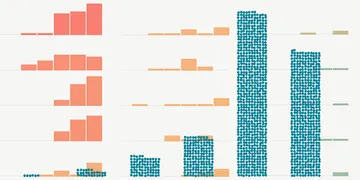Welcome to the first installment of Justice Talk, our new monthly online discussion series with Digg Dialog. Our first chat will be a live Dialog on Wednesday, February 24th about predictive policing with a host of experts, law enforcement officials and journalists who've written about the topic. You'll be able to access it at the link above.
Below you'll find essential reading on the topic. Come Wednesday with your questions and comments!
First: What, Exactly, Is Predictive Policing?
In the aftermath of Michael Brown's death, St. Louis cops are using crime-predicting software. How it works:With The Verge
Posted by The Marshall Project on Friday, February 5, 2016
Policing The Future, The Marshall Project, February 2016
Our recent feature with The Verge explores the latest iteration of predictive policing, HunchLab. The technology uses a range of data points and statistical modeling to decide block by block which areas are at highest risk of crime at different points during the day. Related: smart responses from readers.
Can Crime Be Ethically Predicted?, TheNew York Times, November 2015
In this New York Times "Room for Debate" installment, experts examine the impact that big data and predictive policing have on race and civil liberties.
Predicting Predictive Policing In NYC, Huffington Post, July 2015
Five questions concerned citizens should ask about crime prediction software.
The Future Of Policing Looks A Lot Like Good Branding, SF Weekly, October 2013
In San Francisco, predictive policing is "riding this wave of techno-mania and capitalizing on the belief [...] that there's a killer app for everything, including crime-fighting."
Predictive Policing May Be A Constitutional Problem, ABA Journal, September 2013
The ABA Journal explores Fourth Amendment concerns raised by predictive policing.
Places, Not People, Are The Focus Of This New Crime-Fighting Data Analysis Tool, VICE, October 2015
Risk-terrain modeling is another predictive analytic tactic. Its supporters say it’s more community- friendly than technology like CompStat, because, as Atlantic City Police Chief Henry White Jr said, it "focuses on the geographical characteristics that attract criminals to hotspots, rather than the people who happen to be inside a hotspot."
Police Program Aims To Pinpoint Those Most Likely To Commit Crimes, The New York Times, September 2015
Some predictive policing programs focus on people rather than places. In Chicago, for example, police have a “heat list” of 400 people they’ve "considered far more likely than the average person to be involved in violent crime."
A previous version of this post misstated the focus of HunchLab.
